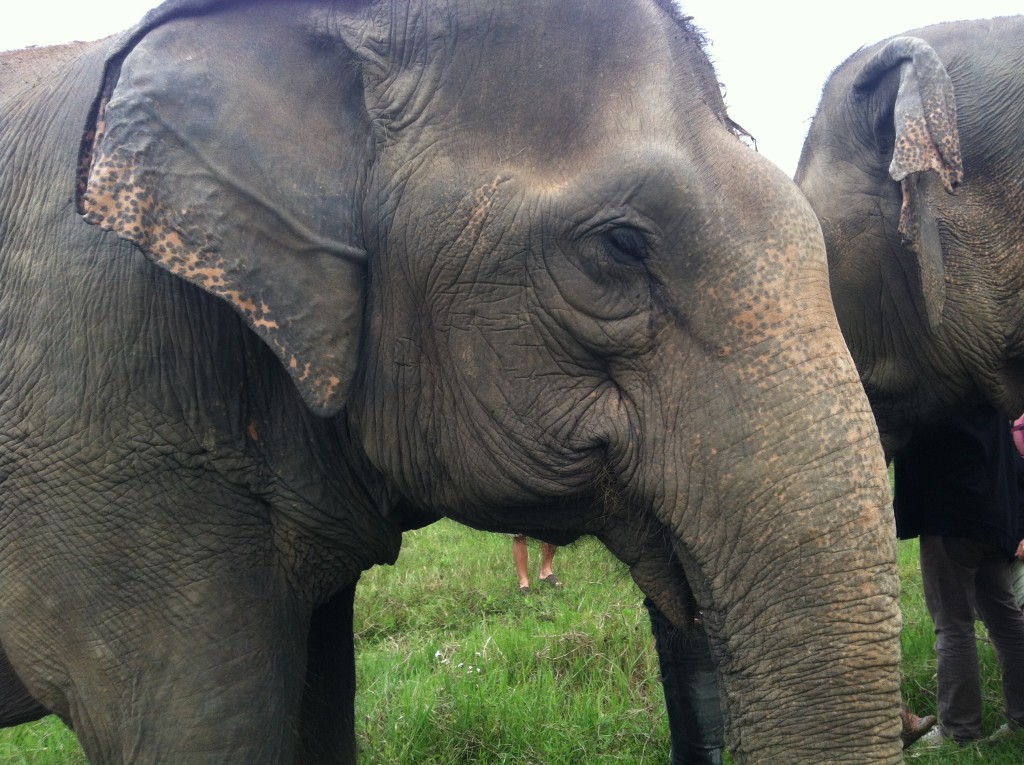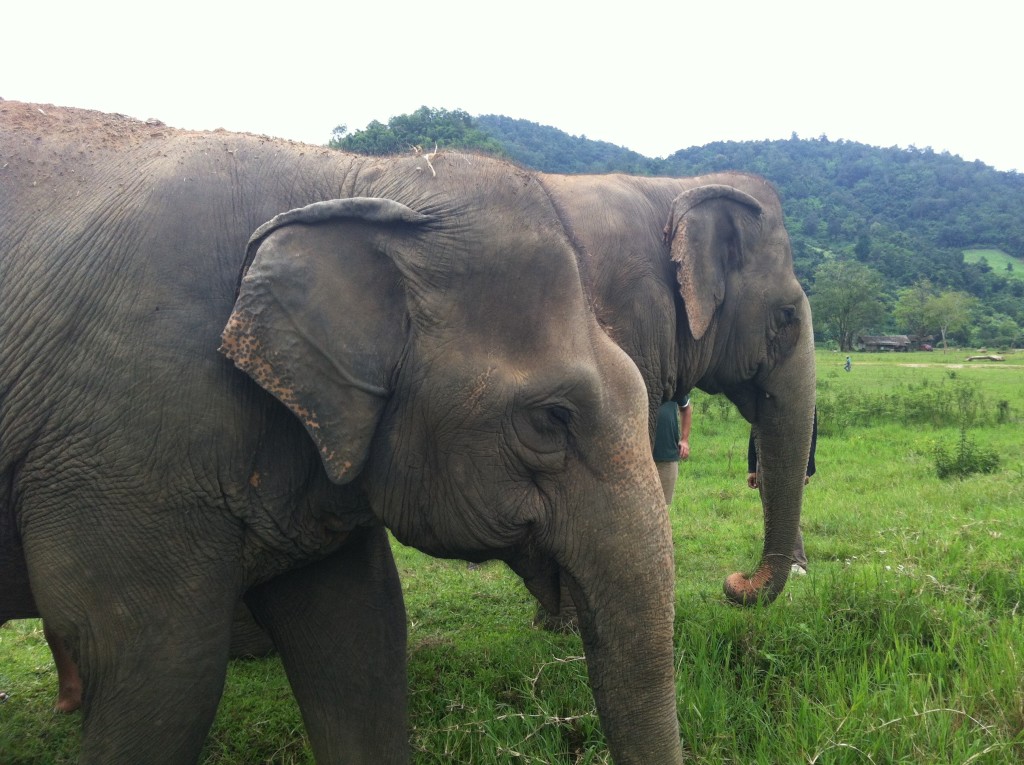‘Artifacts from my Travels’ is a series of meditations upon one aspect of a country that I have visited.
A wooden figurine of an elephant.
That is what I’m looking at as I write these words. But I see more than a figurine. I see a tangle of memories and emotions, both tragic and joyful.
I see the plight of the elephant in Thailand.
I bought the figurine in the Night Bazaar in Chiang Mai for 50 baht, 2 days after I bathed with rescued elephants in the tropical mountain region of Chiang Rai.
Just a week earlier, I didn’t realise that the life of an elephant in Thailand is a whole lot worse than that of its figurine counterpart. Now, I’m all too aware of the brutal reality.
In Thailand, tourism brings in around 6% of the country’s GDP every year. More than any other Asian nation. The elephant helps to bring a very large part of that. In return for its help, this beautiful animal endures a hellish life of unimaginable cruelty.
The nightmare begins when the elephant is just a baby.
Mahouts (men who make their living from the elephant) tear the baby away from its mother. They tie the baby up and bind its legs to trees so that it cannot move. The baby struggles because it is scared. But the bonds are too tight.
Then begins the process of breaking the baby in. Large groups of mahouts assault the elephant with sticks and knives. They stab it repeatedly, drawing blood and screams. Many baby elephants are blinded during this process. Mahouts often jam sharp sticks into their eyes.
This process lasts many days.
How long the process lasts depends on how stubborn the elephant is. If the elephant submits quickly, the torture doesn’t last more than a few days. But if the elephant resists, as many male elephants do, the torture can last a week.
Finally, the elephant is broken.
Ever wonder why elephants who are tied up by a tiny rope don’t escape? Surely they possess the strength to break out of their bonds.
This is true. They possess the physical strength but not the mental strength.
The elephants are so psychologically scarred from this ordeal, the memories of being ripped from their mother and tortured, that they will never disobey their mahout (master).
Words can’t do justice to the torment these elephants are forced to endure.
If you’re feeling brave, watch this video. I must warn you, the video is incredibly distressing.
Ever wonder how elephants are able to do tricks? You might have seen an elephant with a paintbrush clasped in its trunk and painting a picture. You likely thought the elephant was very clever.
This is true. The elephant is a very clever creature. They have remarkable memories and are beautifully sensitive and loving.
However, it is not in their nature to paint things in front of crowds of applauding spectators.
They are terrified. They have been beaten so often and so badly that they will do anything.
Beatings are a daily occurrence for elephants in Thailand (and other parts of SE Asia like Cambodia and Vietnam).
Did you know that you are not supposed to ride on an elephant’s back?
Elephants have very weak backs. Their backs are not much stronger than that of a dog’s.
They are not supposed to carry four people around on their back. This causes immense damage and pain to them. Elephants suffer from collapsed hips and constant agony when they are made to carry tourists around all day.
Those elephants carrying people on their back are also given very little rest. They are sleep-deprived but they need to work ungodly hours because their owner wants the most money. If they refuse, they are beaten, blinded, tortured close to the point of murder.

I visited Lek Chailert’s Elephant Nature Park in Northern Thailand in order to interact with and aid rescued elephants in a humane way.
We were informed about the atrocities committed against elephants in Thailand and learnt about each rescued elephant’s own tragic history.
One elephant was blind in both eyes because her master had thrown gunpowder in them to punish her.
Another elephant had a collapsed hip because her master forced her to breed with an ill-suited mate and her already injured body (from thousands of beatings) couldn’t take the weight.
Another elephant had been forced to walk on a land mine for the master’s enjoyment.
Truly sickening images.
I do not wish to upset you but rather to impress upon you the importance of how you interact with elephants in Thailand.
If you go ride on an elephant’s back, you are perpetuating the misery that mahouts inflict upon these poor creatures.
If you go to establishments that make the elephants do tricks, you are also putting money in the pockets of people who are evil towards these animals.
If you want to meet these gentle creatures on your vacation, go to somewhere that protects them and gives them the life that they deserve.
My recommendation is Lek Chailert’s Elephant Nature Park.
You won’t ride the elephants’ backs. You won’t see them do tricks. But you will have the time of your life in an environment that truly loves these beautiful animals.
You will get to feed the elephants, stroke them, hug them, bathe them in the river, and give them all the care they deserve after a hellish life of entrapment.
The elephant is one of the most beautiful creatures on this planet. Many people are not aware of the cruelty they undergo. Some people are aware but delude themselves into thinking that it isn’t so bad. We must make the world aware of this reality so that tourists can boycott malicious mahouts and only interact with elephants in a loving environment.
